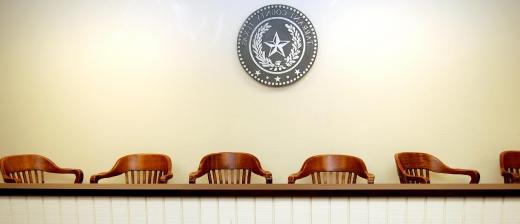At WiseGEEK, we're committed to delivering accurate, trustworthy information. Our expert-authored content is rigorously fact-checked and sourced from credible authorities. Discover how we uphold the highest standards in providing you with reliable knowledge.
What is a Trial Consultant?
A trial consultant assists attorneys with various phases of civil and criminal trials. Historically, they were also called jury consultants, and their primary role was to help trial lawyers select their juries. They typically did this by studying potential jurors and suggesting which individuals would most likely return a favorable verdict. Today, however, trial consultants are often used in many more legal situations than just jury selection, and many companies offer consulting expertise for all phases of trial. Examples of these services can include pre-trial preparation, courtroom technology assistance during a trial, and post-trial or follow-up activities.
In the pre-trial phase, a trial consultant might be hired to study the behavior of potential jurors. This can be done in many ways, for example, by reading people's body language during voir dire, or by conducting mock trials. During the trial, he or she may continue to observe the jury in order to provide the lawyer with insight about potential verdicts. In addition to working with juries, many consultants now offer services to attorneys — such as pretrial strategic planning. They also may make recommendations for the best way to present a case to a jury, or the most effective way to introduce witness testimony and evidence.

A technology expert might also be employed as a trial consultant in the pre-trial phase. A trial technologist generally uses his or her combined skills in law and technology to assist trial lawyers. For instance, they can help organize documents and evidence into a more user-friendly format in preparation for a trial. This can help legal teams organize and present key information more efficiently.

During a trial, an attorney may want to incorporate visual aids or other technological tools to strengthen his or her case. Since he or she may not have the time or the skills to create such aids, many lawyers hire trial consulting firms to assist with technological needs. Examples of the services that these companies offer can range from producing relatively simple charts and graphs to more complex products, like videos or films. Many consultants are experts at using presentation software, and are often familiar with courtroom procedures, making their unique skills an asset to trial lawyers.

Once a court proceeding has ended, a trial consultant may provide some follow-up services to the attorneys. These can include conducting individual or group interviews of jurors, in which consultants seek feedback about strategies that could succeed in future trials. Some firms also offer administrative services, like document conversion and organization.
A wide range of skills and experience can be helpful for landing a career in the developing field of trial consulting. A jury consultant typically studies human behavior, so a background in the social sciences usually proves useful, along with research and communications skills. Working with juries might also require an advanced degree in criminology, legal psychology, or another related field.
A trial technologist may have a degree in computer science or information technology, for example. They also often have experience with audio engineering or video production, which can help with managing evidence and creating courtroom presentations. The ability to troubleshoot technical problems quickly in a high-pressure environment can be another asset for these consultants.
AS FEATURED ON:
AS FEATURED ON:













Discussion Comments
I totally agree. I found JRI - Jury Research Institute. You can take their 6.0 CLE courses in jury selection. They also offer free articles related to the field on their website. This is the closest that I've come to finding a course. Good luck!
I have been trying to break into this field for over a year, however there are no courses I can find that teach the skills/knowledge required.
Despite having a master's degree in Behavioral Sciences, I cannot find a way to learn how to do focus groups, mock trials, witness prep, or find an affordable course in SPSS! This is an impossible field to get into. Do you know of any schools that teach courses related this field. Or, do you know how much internships usually pay? I am so frustrated!
Post your comments